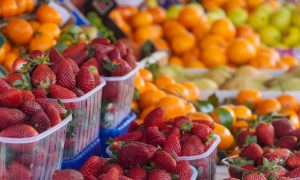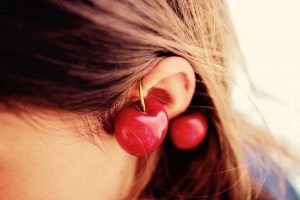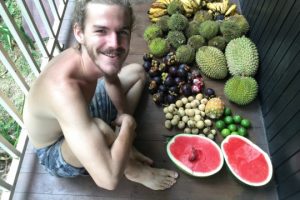Keep Your Fruit Diet Simple

Fresh, whole, local, raw, juicy, and organic fruits are some of the best things we can eat on a raw vegan diet. We can add leafy greens and make salads if we need more variety, or are concerned with nutritional deficiencies. Including other vegetables is fair game if we are struggling to eat nothing but fruit. The most important thing is to avoid animal products and cooked foods.
Sticking to a fruit only diet can be a huge challenge, especially when we are just getting started. Doubt, fear, and temptations, are a vivid part of this process.
Keeping up with a raw vegan diet is also challenging. However, this transition can be easier if you know how to prepare delicious raw vegan recipes. Many people use “raw gourmet foods” during their transition, which supports them in staying away from cooked foods and animal products. If we choose this approach, we need to be careful with eating too much fat. In due time, it is recommended to limit the amount of complex, high fat raw vegan meals we eat, and save those gourmet meals for special occasions.
A solid fruit based meal plan consist of one to three meals of fruit. Variety is always welcome, but the simpler the meal the better. Some people like to eat fruit during the day and a salad at night. Other people can get away with having salad just a few times a week.
When we get started with our fruit based diet, we may need to include some steamed vegetables, especially if we live in cold weather. There is an approach called “Raw Until Four” which invites people to eat only raw vegan foods until 4pm, and cooked vegan foods after that time. This is useful for those who are new to the raw vegan diet, and have trouble eating mostly fruit. That being said, the Raw Until Four approach is far from ideal, given that cooked foods tend to include large amounts of salt, spices, and process oils.
When choosing our food, it is important to be conscious about it. It can be useful to ask ourselves: What are we eating for? Are we choosing a particular food for health and nutrition, or are we choosing it for pleasure? Are we eating because we need that food, or are we using it as a distraction to avoid looking into our physical, mental, or emotional stress? Contemplation will help us realize how and why we chose to eat what we eat.
Overconsumption is counterproductive. This can happen in any diet, from omnivorous meals, to water fasts. It is best to listen to our bodies, and stop before our system shows we had too much. Our bodies have a limit on how much food we can process during a period. If we exceed that limit, some food we consume won’t be digested properly. This is another reason why it is important to be mindful of what and how much food we put into our bodies.
Previous Section:
Acknowledgments
Next Section:
Acknowledgments


